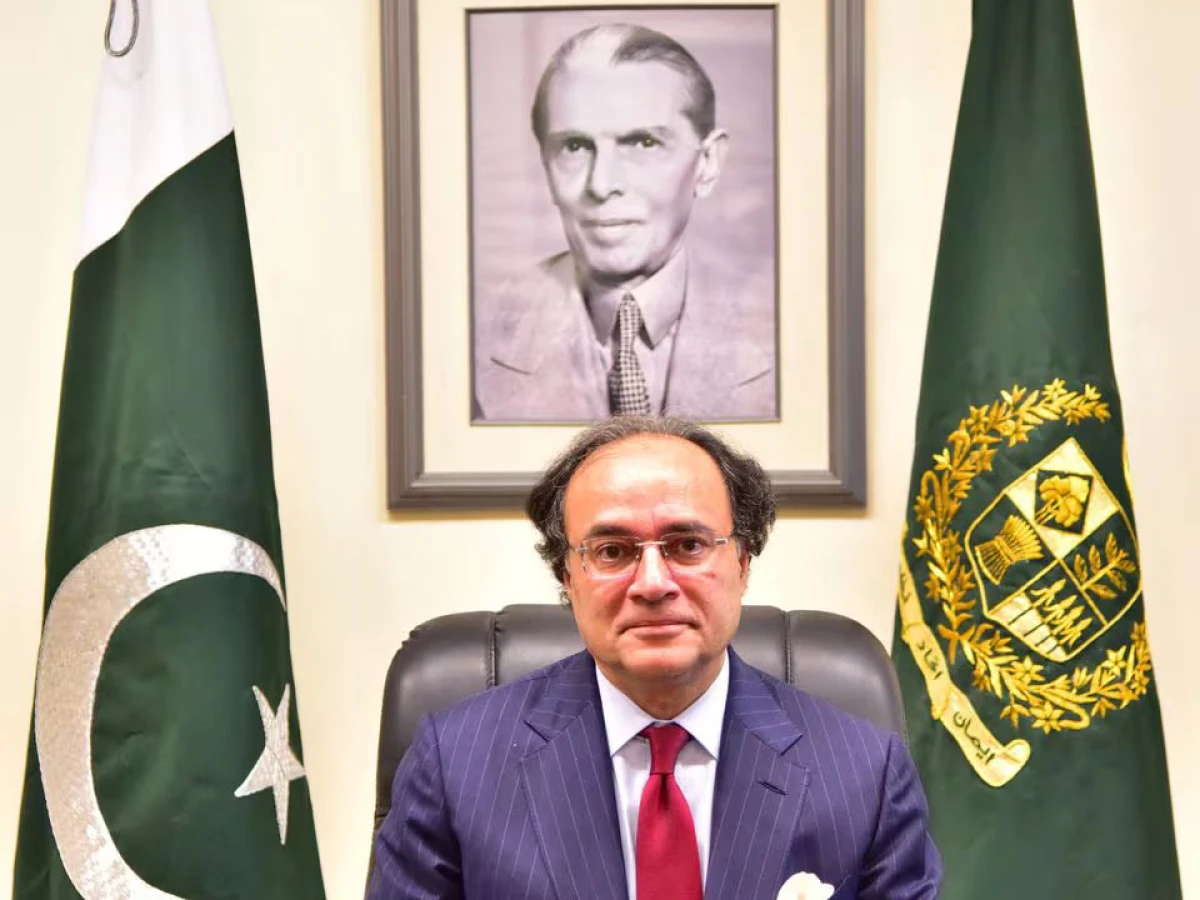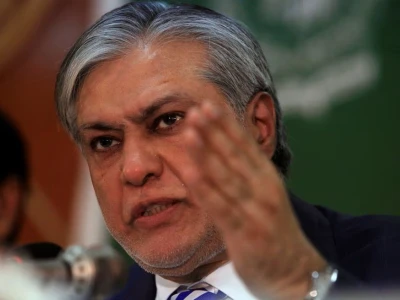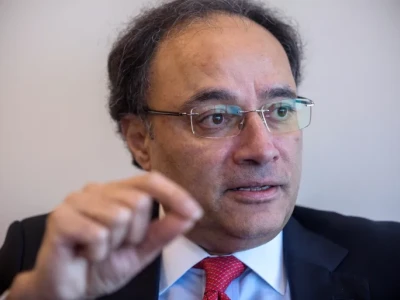
CEO of Pakistan's largest bank picked to lead country out of economic crisis
Aurangzeb has previously placed strong emphasis on using technology for growth.
KARACHI, Pakistan, March 11 (Reuters) - Muhammad Aurangzeb, picked by Prime Minister Shehbaz Sharif to be Pakistan's finance minister, is a vastly experienced private banker who is one of the most highly paid executives in the country, but has never held public office before.
The chief executive officer and president of Pakistan's largest bank, HBL, Aurangzeb was picked over several veterans previously involved in handling the troubled $350 billion economy, including Ishaq Dar, who has been finance minister in four previous administrations.
HBL confirmed his resignation shortly afterwards he took the oath of office.
"Aurangzeb now embarks on a new chapter of service to the nation, underscoring a commitment to national responsibility," said HBL Chairman Sultan Ali Allana.
Aurangzeb will leave behind an annual salary of 352 million Pakistani rupees ($1.28 million), which made him one of the highest paid CEOs in the country, for a government position that pays roughly one-tenth the amount.
His first taste of public office comes at a time Pakistan urgently needs a fresh IMF agreement to shore up an economy suffering from high inflation, low reserves and high external financing needs.
Pakistan's current $3 billion, nine-month IMF bailout programme expires next month, and it is crucial for the country's economic team to negotiate a longer term programme immediately afterwards.
Aurangzeb does not currently have a seat in parliament, but has six months to become a legislator. All cabinet ministers have to be parliamentarians.
He led HBL to a record profit in 2023, at 113.6 billion Pakistani rupees ($407 million), a 47% jump from the previous year, as well as a turnaround in its international businesses, according to the bank's financial statement.
The bank has a balance sheet of 5.5 trillion Pakistani rupees ($20 billion), and has grown its business in a country which has one of the smallest shares of population with bank accounts in the world.
The Switzerland-based Aga Khan Fund for Economic Development (AKFED) owns more than a 50% stake in HBL.
As CEO of HBL, Aurangzeb has worked closely with the government on various initiatives, including partnering to disburse 90 billion rupees to an estimated 7.5 million beneficiaries of state financial support during the COVID-19 pandemic.
The Wharton MBA has also served as the CEO of JP Morgan's Global Corporate Bank based in Asia, and has extensive experience working with global markets.
Aurangzeb has previously placed strong emphasis on using technology for growth, saying that his goal at HBL was to ensure that the bank would be known as a tech company with a banking license.
Steering Pakistan out of its latest economic crisis will, however, present a different challenge, as will bringing stability to a country plagued by crippling boom-bust cycles that has seen it enter more than 20 IMF programmes in the 76 years since it won independence.
Aside from negotiating a new IMF programme, the new finance tsar will have about three months to prepare a federal budget that will need to strike a difficult balance between tough reforms and rejuvenating a struggling economy.
Pakistan also needs to attract foreign investment to bring in funds to shore up its low reserves, which are critical to meeting a large external financing needs, as well as kick starting its flagging economy, which shrunk -0.2% last year.
He will also have to work with the powerful military, which has increased its role in recent years in the country's financial decision-making and has a formal role in policy through a powerful economic body of which the army chief is a member.
Sharif's Pakistan Muslim League-Nawaz (PML-N), leading a minority government, will be relying on the support of different parties to pass critical legislation, with alliance partner Pakistan Peoples Party saying it would support the government on an issue-to-issue basis.
Efforts to assuage growing public anger at record inflation hovering around 30% will also be challenging with limited fiscal space.
Pakistan's debt-to-GDP ratio is already above 70% and the IMF and credit ratings agencies estimate that the interest payments on its debt will soak up 50% to 60% of the government's revenues this year. That is the worst ratio of any sizable economy in the world.




